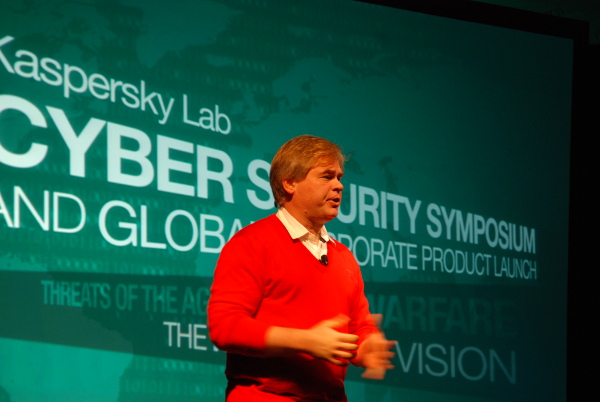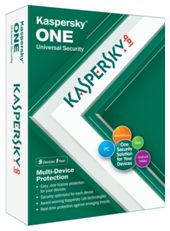
Kaspersky WindowsUnblocker: Malware recovery tool of last resort
Malware takes a variety of forms, starting with the humble virus, but one of the most recent strands is known as ransom malware. As the name suggests, this type of malware can block access to your computer, or offer only limited functionality, until some form of ransom is met -- this could be paying a ransom charge via SMS. The way these infections work mean that they can block access to your computer to the extent that you are not able to run your standard malware software. This is where Kaspersky WindowsUnblocker can help.
This is a free security tool from security experts Kaspersky and can be used even if your computer has been infected to the point that it cannot be booted in the usual way. The Kaspersky website details of how you can use the ISO file that you can download from Downloadcrew to create a bootable CD, DVD or USB drive that can be used to start your machine and then check for and remove ransom malware.

Confessions of a 'SOPA Dodger,' or why Kaspersky quit the BSA
The US blogosphere has become increasingly alarmed by the new Anti-Piracy Act – Stop Online Piracy Act or SOPA. Discussions of the topic are, to put it mildly, quite frank, with comments like: "These idiots are coming for your internet."
What is SOPA? It is support for and development of something that is currently very relevant – the protection of intellectual property. Ladies and gentlemen, this really is important! "Thou shalt not steal," as the Bible says! An author – or more often than not, a team – spends sleepless nights writing a book, composing music, shooting a film, creating software or testing software packages. Doesn’t that deserve a financial reward? Yes or no? Think before you answer – someone could well ask the same question about your profession… So?

Kaspersky Lab is against SOPA: quits Business Software Alliance for supporting it
Security research company and prominent antivirus software vendor Kaspersky Lab has announced its intent to withdraw from the Business Software Alliance (BSA) because of the Alliance's support for the Stop Online Piracy Act (SOPA, also known as H.R. 3261).
The Business Software Alliance (BSA) and the Software & Information Industry Association (SIIA) are the software industry's two biggest trade groups. Since both groups have strong anti-piracy stances, neither directly opposed the Stop Online Piracy Act. Both expressed interest in working with Congress to design the law.

Kaspersky debuts Endpoint Security 8 for Windows, talks cyber-warfare
At its Cybersecurity Symposium in New York City on Thursday, Security company Kaspersky Lab debuted the Windows version of its Endpoint Security 8 corporate security suite. The new security product takes a twofold approach to network security: Deep anti-malware protection, and comprehensive management and control systems.
On the anti-malware side, Endpoint 8 integrates with the Kaspersky Security Network, a cloud-based reputation database that is built from data submitted by millions of Kaspersky users so new definitions are acquired quickly without having to update an ever-growing local database. Secondly, it includes application whitelisting for administrators who want to set policies against specific applications, or against entire classes of apps. Third, the "System watcher" function tracks client system behavior for anomalies, and can revert to states before the system was infected. Finally, Endpoint 8 is based on Kaspersky's improved signature-and-pattern-based antivirus engine.

Kaspersky introduces ONE license for PC, smartphone & tablet security
Security company Kaspersky Lab on Tuesday announced a new program called Kaspersky ONE, where a single license covers the security software across all of a user's devices: desktop, notebook, smartphone, and tablet.
Having security on your PC should be a given. It's just a matter of personal preference which security suite you use. But when you own multiple PCs with vastly different hardware configurations, or multiple PCs and multiple mobile devices, comprehensive security is often not a priority. Kaspersky suggests that this is due to the hassle of multiple licenses for the different platforms we deal with.

Kaspersky Internet Security 2012: Better protection using fewer PC resources
If you like your security suites to be feature-rich then Kaspersky's offerings have always been worth a look, as most editions come packed with functionality that you won't find elsewhere. Kaspersky Internet Security 2012 (KIS 2012) is a little quieter than usual, though; its release notes show no big additions this time around, just interface tweaks and various engine optimisations. So what does this mean in real life? We took a closer look.
Tweaks and Tucks

Kaspersky releases Anti-Virus and Internet Security 2012
Russian security company Kaspersky has dropped the beta tag from Anti-Virus 2012 and Internet Security 2012 products, launching both today. While there are no revolutionary changes on offer, Kaspersky has provided more than enough general improvements and enhancements to justify giving the programs a closer look.
Significant low-level changes sees both Anti-Virus and Internet Security 2012 offering strong protection even earlier in the boot process, for instance, making it harder for rootkits to modify the operating system, and blocking attempts by malware to disable the antivirus engine.

Kidnapped Kaspersky son freed in raid; no ransom paid
Kaspersky Lab has issued a statement Sunday confirming earlier reports that Ivan Kaspersky, son of CEO and founder Eugene Kaspersky, had been kidnapped and subsequently freed. Ivan Kaspersky was freed in an "operation" by the authorities and no ransom was paid.
The statement in full follows: "Kaspersky Lab confirms that an operation to free Ivan Kaspersky was carried out successfully by the Federal Security Service (FSB), the Criminal Investigation Department of the Moscow Police and Kaspersky Lab's own security personnel. Ivan is alive and well and is currently located at a safe location. No ransom was paid during the rescue operation. Eugene Kaspersky and Natalya Kaspersky are currently unavailable for comment."

Eugene Kaspersky is one tough guy
The security community deals with disturbing news all the time, but none so disturbing as the reports that the son of Eugene Kaspersky, founder and CEO of Kaspersky Lab, has been kidnapped (and now reportedly freed). Russia is a tough place.
The Western stereotype of a Russian businessman is a politically-connected tyrant who probably only got his business through corrupt means. Not Yevgeny "Eugene" Kaspersky; I don't really know much about how he built his business, but I do know that his company has developed high-quality, respected security products that sell really well in the West. He's a genuine engineer, who worked on his own products until the company got too big for that to make sense. You can't do that by bribing public officials.

Kidnapped son of Kaspersky founders freed, say reports
The 20-year-old son of Kaspersky Lab founders Natalia and Eugene Kaspersky, who was reportedly being held for 3 million Euro ransom by kidnappers in Moscow, may have been released on Friday.
Kaspersky Lab issued an official statement which neither confrimed nor denied the reports of Ivan Kaspersky's kidnapping, and rather gently asked the media to hold back on its speculation, and not to report on rumors and allegations.

Son of Kaspersky Lab's founder reported kidnapped in Moscow
Russian media, including the Moscow Times have been posting reports that the son of Yvegny Kaspersky, head of leading international data security firm Kaspersky Lab, has been kidnapped.
At about 4pm EST on Thursday, the Russian government's daily paper Rossiyskaya Gazeta published a report which said local law enforcement had confirmed the kidnapping of 20 year old Ivan Kaspersky.

Kaspersky TDSSKiller roots out rootkits
Rootkits are the ultimate in stealthy malware, burying themselves so deep into your system that they're often very hard to spot. If you're unlucky enough to encounter one then your antivirus package might detect it, but there are no guarantees, and so it may be wise to equip your PC with a second line of defence in Kaspersky's TDSSKiller.
As the name suggests, TDSSKiller is designed to target a few, specific threats (TDSS, Sinowal, Whistler, Phanta, Trup, Stoned). These can be very dangerous, though, so having another way to pick them up isn't going to hurt -- and the program can also detect hidden services, forged files, MBR changes and other suspicious signs that could indicate infection by a brand new rootkit.
Adobe, Kaspersky warn of botnet worm spreading via social networks
The maker of Flash and the leading security lab said earlier this week that a worm first discovered last Thursday is being spread through social networks disguised as a update to Flash Player.
Adobe says there is no update. The worms, dubbed Koobface.a and Koobface.b by security firm Kaspersky, spread themselves through leaving comments and messages on Facebook and MySpace, which are sent to friends of an infected user.
Kaspersky Testing Mobile Antivirus
Kaspersky Labs is seeking beta testers for the second version of its Anti-Virus Mobile product, which protects Symbian based smartphones, including those from Nokia, Panasonic, Samsung and Siemens. New features of the 2.0 release include faster performance, quarantine support, as well as spam blocking for SMS and MMS messages.
In addition, "The user can customize Kaspersky Anti-Virus Mobile settings, monitor current protection status, and view application logs with the results of application activities," the company says. Kaspersky plans to add support for Microsoft's Windows Mobile platform with Beta 2, which is currently in development. More information and downloads of Anti-Virus Mobile 2.0 are available from Kaspersky's Web site.
Security Flaw in Kaspersky Antivirus
UPDATED A security researcher has uncovered a critical security flaw in Kaspersky Anti-Virus that could allow an attacker to take control of a vulnerable system. The problem lies in a component used to open CAB files, which can be exploited using a buffer overflow.
According to an advisory issued by Alex Wheeler, a malformed CAB file could be sent via e-mail, and when opened by Kaspersky Antivirus for processing the PC could be compromised.
